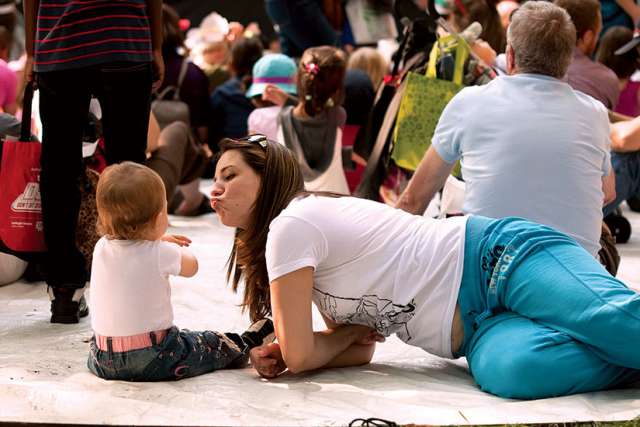The starting point for 300 bishops who gathered to talk about family issues in Rome in October wasn’t divorce and remarriage, gay couples, wife beating, poverty or generational divides, said Edmonton Archbishop Richard Smith. Ground zero for Synod discussions on the family was the beauty of the Catholic ideal of marriage and appreciation for those who live the ideal, he said.
“(We had) this shared, unshakable conviction about the beauty of marriage and family life,” Smith told a teleconference a month after returning from the Synod on the Family.
The Synod produced a 94- paragraph summary of the discussions in Rome, which Smith hopes will be the basis for an apostolic exhortation expected from Pope Francis sometime next year.
If we begin with all the things that result in broken marriages and alienated families, the problems will overwhelm us before we ever find our way to a solution, said Smith.
“We tend to focus on the challenges and the problems, and we see those each and every day when visiting homes,” said the bishop.
“When I visit schools I see a lot of the challenges and so on. You can fall into the trap of seeing just the difficulties, just the challenges, just the problems.”
In fact, many bishops felt the working document for the Synod had fallen into exactly that trap.
“But that soon shifted when the bishops said ‘No, no, no. Let’s not forget the heart of this. Let’s not forget the beauty,’ ” Smith recalled. “That turned things around in a wonderful way.”
Though it might not seem like the people in happy marriages with flourishing families would be first in line for the mercy of the Church, Smith is convinced that pastoral accompaniment should be there to encourage ideal Catholic families.
“Given what the Holy Father has shown so clearly since the beginning of his pontificate — the need for the pastoral, merciful face of the Church to show itself ever more clearly, not that it hasn’t in the past, obviously, but ever more clearly — to be going out to the peripheries, I would expect that the Pope will be giving direction to individual bishops, their local churches, to find ways for that specific pastoral accompaniment that has to happen,” Smith said.
A focus on the beauty of marriage doesn’t mean ignoring the problems, said Smith. Media reports during the Synod that made Gatineau Archbishop Paul- André Durocher’s presentation out to be about nothing but ordaining women as deacons missed the point of what Durocher was saying, according to Smith.
“His purpose in his intervention was to lift (family violence) up and to lift up the obvious, tragic fact that it’s most often women who are victims of this domestic violence,” he said. “The Church needs to be addressing that — accompanying these people, raising their voices and so on.”
Smith doesn’t think most of the bishops were terribly taken with the idea of women deacons.
“What did find an echo certainly among all the bishops, and was repeated in a number of other interventions that bishops had prepared ahead of time, was the issue of domestic violence,” he said. “This is something that here in Canada, and particularly in Alberta I’m sad to say, is an issue. Alberta has the highest incidence of domestic violence in the country.”
In the international context of the Synod, bishops were made quite aware that the challenges families face are not the same everywhere.
“For example, I’m listening to the cries of bishops from Iraq and Syria on behalf of the families there with everything they are going through,” Smith said. “Being ripped apart by the terrorism happening there and the flood of refugees who are suffering so terribly.”
Whether it’s poverty in Africa and Asia that forces couples to split in order to seek work, or terrorist threats in Africa and the Middle East, or polygamy in parts of rural Africa, the pastoral situation of each diocese with regard to families is unique. While bishops and pastors must always find creative and unique ways to minister within their own context, that doesn’t mean there isn’t a role for universal doctrine on family life, said Smith.
“We were (at the Synod) speaking on a universal level. There’s always the recognition that every diocese has its own concrete reality and the bishop as the local shepherd has to guide and respond to that.
“But we always do so regardless of individual circumstances which differ, we always do so as members of one Catholic family.”


